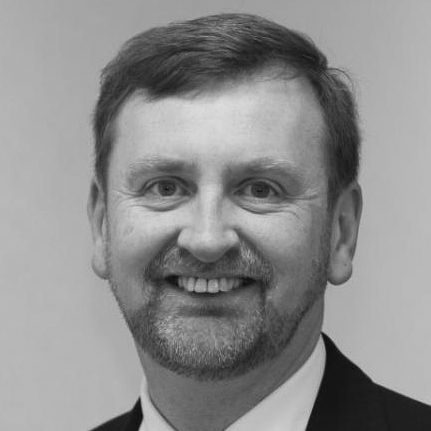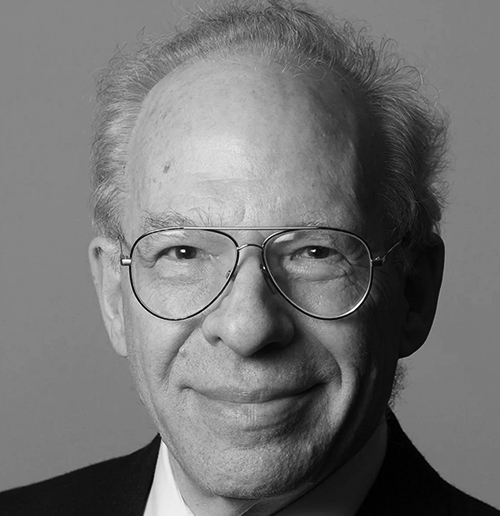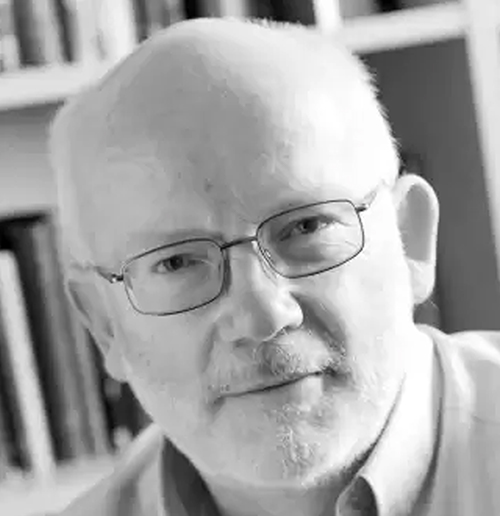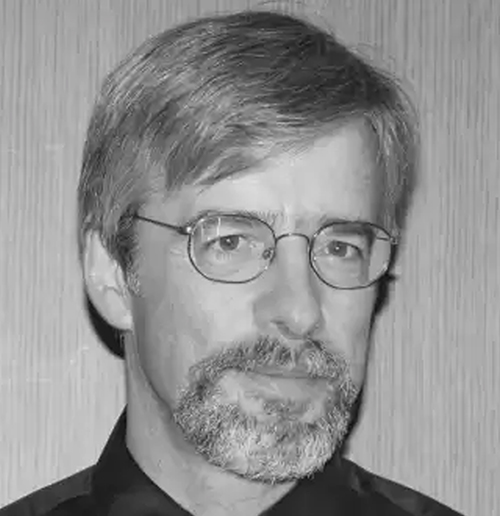
Steven Chu
Scientific Advisor
Steven Chu is the William R. Kenan, Jr., Professor of Physics and Professor of Molecular & Cellular Physiology at Stanford University. His has published over 275 papers in fields that include atomic physics, polymer physics, biophysics, biology, energy, batteries and holds 11 patents. Currently, he is developing new optical nanoparticle probes and new optical, acoustic and photoacoustic imaging methods for applications in biology and biomedicine. He is also exploring new approaches to lithium ion batteries, PM2.5 air filtration and other applications of nanotechnology.
Prior to his cabinet post, he was director of the Lawrence Berkeley National Laboratory and Professor of Physics and Molecular and Cell Biology at UC Berkeley from 2005 to 2008. Previously he was the Theodore and Francis Geballe Professor of Physics and Applied Physics at Stanford University. He helped launch Bio-X at Stanford University, a multi-disciplinary institute combining the physical and biological sciences with medicine and engineering, and the Kavli Institute for Particle Astrophysics and Cosmology. Previously he was head of the Quantum Electronics Research Department at AT&T Bell Laboratories.
Dr. Chu is the co-recipient of the Nobel Prize for Physics (1997) for his contributions to laser cooling and atom trapping. He is a member of the National Academy of Sciences, the American Philosophical Society, the National Academy of Inventors, the American Academy of Arts and Sciences, the Academia Sinica, and is a foreign member of the Royal Society, the Royal Academy of Engineering, the Chinese Academy of Sciences, and the Korean Academy of Sciences and Technology. He received an A.B. degree in mathematics and a B.S. degree in physics from the University of Rochester. He earned a Ph.D. in physics from the University of California, Berkeley, and has 30 honorary degrees.

Jeremy Chittenden
Scientific Advisor
Jeremy Chittenden is a Professor of Plasma Physics at Imperial College with over 30 years’ experience of innovative research in fields of high energy density physics, laboratory astrophysics and inertial confinement fusion (ICF). He is responsible for developing a broad range of radiation hydrodynamics, MHD and kinetic plasma modelling tools which are used extensively in the design of experiments through collaborations with groups in the UK, US & France.
Prof. Chittenden is a fellow of the American Physical Society, a divisional associate editor of Physical Review Letters and has published over 170 peer reviewed articles. He joins the board, on an independent basis, via Imperial Consultants.

Richard Dennis
Scientific Advisor
Richard Dennis is a Chartered Engineer with 36 years track record in the Energy industry. Richard was formerly Global Director of Research and Development for Doosan Babcock Energy Ltd where he was responsible for power and energy development and investments into new technologies including those associated with reducing the impact of CO2 on the environment.
Richard has been a Non-Executive Director for a variety of other environmental and energy business focused companies over the last 5 years.
Richard has a degree in engineering from Leeds University and an MBA from Cranfield Business School.

Richard L. Garwin
Scientific Advisor
Richard L. Garwin joined IBM in 1952 and is IBM Fellow Emeritus at the Thomas J. Watson Research Center. In addition, he is a consultant to the U.S. government on matters of military technology and arms control. He has been Director of the IBM Watson Laboratory, Director of Applied Research at the IBM Thomas J. Watson Research Center, a member of the IBM Corporate Technical Committee, Adjunct Research Fellow and Professor of Public Policy in the Kennedy School of Government, Harvard University and Adjunct Professor of Physics at Columbia University. From 1997 to 2004 he was Philip D. Reed Senior Fellow for Science and Technology at the Council on Foreign Relations, New York.
He is a Fellow of the American Physical Society, of the IEEE, and of the American Academy of Arts and Sciences; and a member of the U.S. National Academy of Engineering, the National Academy of Sciences, the National Academy of Medicine, the Council on Foreign Relations, and the American Philosophical Society. He served on the Council of the National Academy of Sciences 1983-1986 and 2002-2005.
Richard received numerous prizes and awards, including the Presidential Medal of Freedom and the National Medal of Science.
Since 2009 he has been a consultant to the Office of Science and Technology Policy in the Executive Offices of the President. In 2010 he was a consultant to Secretary of Energy Steve Chu on the Deep Water Horizon (BP) oil spill, and in 2011 he supported Secretary Chu again on the U.S. response to the damaged reactors at Fukushima Dai-ichi.
In 2000, on the 40th anniversary of the founding of the National Reconnaissance Office (NRO) he was recognized as one of the ten Founders of National Reconnaissance. He has been a member of the Scientific Advisory Group to the Joint Strategic Target Planning Staff and was in 1998 a Commissioner on the 9-person “Rumsfeld” Commission to Assess the Ballistic Missile Threat to the United States. From 1993 to August 2001, he chaired the Arms Control and Nonproliferation Advisory Board of the Department of State.
Richard received the B.S. in Physics from Case Institute of Technology, Cleveland, in 1947, and the Ph.D. in Physics from the University of Chicago in 1949.

Andrew Randewich
Scientific Advisor
After completing a PhD in plasma physics, Andrew joined AWE in 1997 in the High Altitude Nuclear Effects Team where he developed a novel capability to model Nuclear Induced Van Allen Belts, worked on Electromagnetic Pulse phenomenology, and won the AWE Discovery Award for Early Career Scientific Innovation. Andrew later worked on thermonuclear burn modelling in support of Inertial Confinement Fusion and as a Team Leader in the Computational Physics Group. Since then, Andrew managed the Physics Certification programme and later led the High Performance Computing Group.
From 2016 Andrew was Head of Physics Function comprising 550 staff including AWE’s Criticality and Design Safety groups. Andrew became Director of Science, Engineering and Technology in 2019 and also picked up the AWE Chief Scientist role again looking after 1800 staff and the major facilities supporting the science and engineering behind the Certification of the UK Deterrent. Since 2020 Andrew has been Executive Director Engineering and Science and manages 3100 people; around half of the AWE workforce.
Andrew regularly sits on national and international review panels, for example he has served on the UK Fusion Advisory Board, the US National Ignition Facility Management Advisory Committee, several NNSA reviews of Inertial Confinement Fusion, the Nuclear Innovation and Research Advisory Board and the Nuclear Decommissioning Authority Research Board. Andrew sits on the AWE Diversity and Inclusion Strategy Board and IOP Women in Physics Advisory Panel, and previously the Institute of Physics Diversity and Inclusion Committee. Andrew has twice been a judge for the national Women in Science and Engineering awards. For six years Andrew was deputy Chair of the AWE Nuclear Safety Committee, the Warhead Safety Committee and a co-opted member of the MoD Trident Safety Committee, and was appointed as a visiting Professor at Imperial College, London in 2012. He is a Chartered Physicist, a Chartered Engineer and a Fellow of the Institute of Physics.
Photo UK Ministry of Defence © Crown Copyright (2022)

Steven Rose
Scientific Advisor
Steven Rose has worked in plasma physics for all of his career, with a particular emphasis on plasmas produced using high-power lasers.
He has spent much of that time at the two high-power laser facilities in the UK: the Rutherford Appleton Laboratory’s Central Laser Facility where he became the Associate Director for Physics, and at AWE Aldermaston where he was the Head of Plasma Physics.

Ronald Roy
Advisor
Ronald Roy is the Professor of Mechanical Engineering and the Head of the Department of Engineering Science at the University of Oxford. Trained as a physicist and an engineer, Prof. Roy specializes in the application of physical acoustics principles to problems in biomedical acoustics, industrial ultrasonics, and acoustical oceanography – with emphasis on the acoustics of bubbles and bubbly media.

Dr. Rick Spielman
Scientific Advisor
Rick Spielman received his Ph.D. in Plasma Physics from the University of California, Davis, in 1978, where he was a Chancellor’s Fellow and a Regent’s Fellow. Moving to Sandia National Laboratories in 1979, he was first a Member of the Technical Staff, then a Principal Member of the Technical Staff, and finally a Distinguished Member of the Technical Staff. He was the Chief Scientist and Project Manager at Sandia for the successful Z Machine – the most powerful pulsed-power driver in the world.
Dr. Spielman is leading the design effort for a potential intermediate pulsed-power facility and is working with Sandia National Laboratories in the design of the Next Generation Pulsed Power (NGPP) facility. He is heading the LLE program for short-pulse laser effects for external customers.